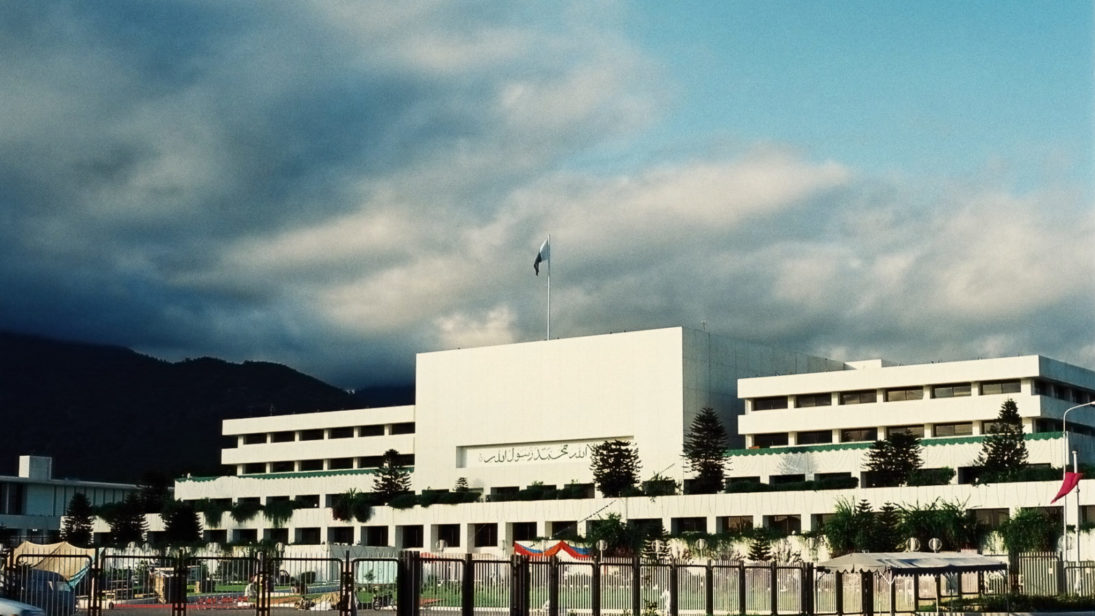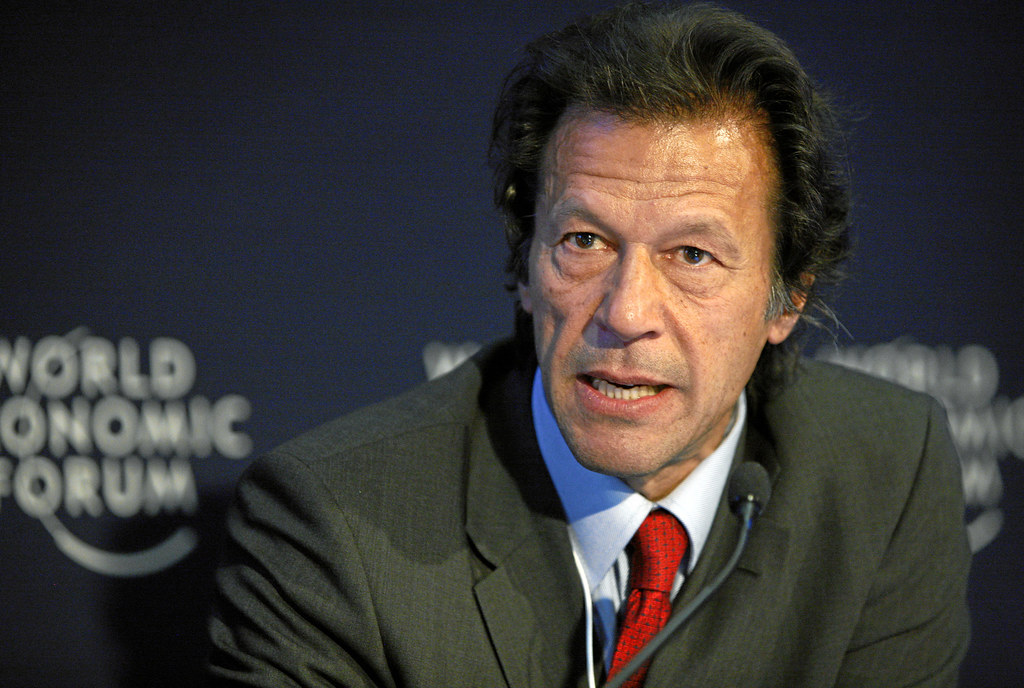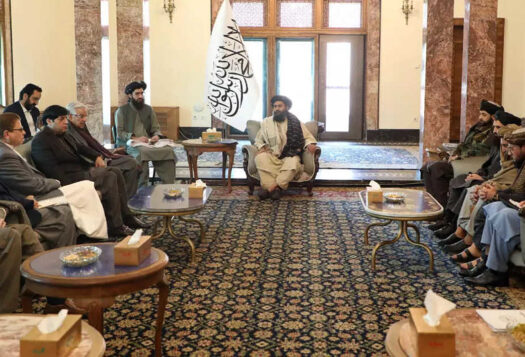
Just over a year ago, after 22 years of falling short of the requisite number of representatives, the Pakistan Tehreek-e-Insaf (PTI), led by Prime Minister Imran Khan, finally secured a majority of seats in the national assembly. As they came to power, the party leadership vowed major reform.
Legislation proposed and enacted by the national assembly in the last 12 months provides significant insight into the PTI government’s successes and failures in its first year in office. The PTI had run a long campaign against electoral rigging and had criticized the former government for its economic policies. It thus comes as no surprise that the government prioritized electoral reform and economic policy in its legislation: of the seven acts sanctioned over the past year, three are finance-related and two are amendments to the Elections Act.
However, the PTI-led government failed to bring substantial structural change in either of these priority sectors. In the economic policy realm, the government was unable to balance immediate stabilization measures—including seeking an International Monetary Fund (IMF) loan—with its proposed long-term structural reforms. This led it to backtrack on some of its campaign promises. While the PTI remained somewhat on track with regard to electoral reform, it did not realize its promise of instituting a new model to ensure free and fair elections. The PTI’s stature as a mainstream party in the future political landscape of Pakistan is contingent on its ability to enact these structural economic and electoral reforms before its tenure is up in 2023.
The Challenge of Structural Reform in an Economic Crisis
The PTI began its legislative journey at a time when Pakistan teetered on the brink of financial collapse and bankruptcy. With a trade deficit approaching USD $38 billion due to an increasing gap between imports and exports, the immediate task before the government was to increase forex reserves. That required a compromise on its promised strategy to keep away from foreign lending. Initially, in addition to its diplomatic efforts to attract funding from allies such as Saudi Arabia and China, the PTI government drafted a plan to get the country out of this crisis by reducing the trade gap and increasing revenue with a wider tax net. This in and of itself would do little to avert the impending economic crisis. In its efforts to aid the ailing economy in the immediate term, the party leadership compromised on its promised economic overhaul.
In its first few months in office, the government’s economic policy focused on increasing the tax net. Asad Umar, the man behind the PTI’s economic policies, was an outspoken critic of the previous government, arguing that it lay out unachievable revenue and expenditure estimates. The public was thus unsurprised when the government passed the Finance Supplementary (Amendment) Act (or “mini budget”) in October 2018. The mini budget’s proposals were mostly consistent with the promises made in the PTI manifesto, and reflected Umar’s strategy of enacting gradual economic reforms.
While increasing the tax net would benefit it in the long run, the faltering economy in the near term required more immediate aid. As the inflation rate rose to a historic 9.4 percent and the employment market shrunk in response to the deteriorating economy, citizens clamored for the return of USD $200 billion in foreign stash and for adding 10 million jobs the PTI had promised. By March 2019, foreign direct investment was declining and currency devaluation reached its peak. So, Umar stepped up efforts to seek a loan from the IMF even though Prime Minister Khan had expressed vocal opposition to this course of action throughout the 2018 election campaign.
The second amendment to the Finance Act came in March 2019 amid an uncertain environment: Umar appeared unwilling to accept the harsh austerity measures attached to the IMF loan, and support from China and Saudi Arabia did little to ameliorate the poor economic condition. The twenty-page long “second mini-budget” brought key changes to revive local industry and to empower the tax authorities. Yet it lacked a clear agenda for the most pressing issue at hand: the fast-depleting foreign exchange reserves.
The twenty-page long “second mini-budget” brought key changes to revive local industry and to empower the tax authorities. Yet it lacked a clear agenda for the most pressing issue at hand: the fast-depleting foreign exchange reserves.
The final blow to the PTI’s economic policy of enacting long-term structural reform came when Khan reshuffled his cabinet, resulting in the resignation of Umar and the appointment of Abdul Hafeez Shaikh as the Prime Minister’s Advisor on Finance. Shaikh, who had previously served under the Pakistan Peoples Party in the 2008–2013 government, is known for being more inclined towards lending institutions like the World Bank and the IMF.
As of August 2019, the PTI’s economic policy has done an about face. The newly hired team of economists prepared the Finance Act, 2019 – the PTI government’s first annual budget. Shaikh’s team preferred tried and tested strategies in managing the economic situation but these strategies did not align well with Umar’s commitment to structural reform. Shaikh opted to increase revenue through a higher sales tax, a lower tax slab, ambitious revenue estimates, low budget share of education and healthcare, and increased reliance on foreign lenders. This budget is virtually a replica of the budgets passed in the previous PML-N-led government. It may stabilize the economy for the time being, but it is unlikely to bring any long-standing overhaul to Pakistan’s economic system. At least as far as economic policy is concerned, the PTI’s Naya Pakistan is the same as the old one.

Electoral Reforms: Slow but in Right Direction
The PTI has a history of advocating for electoral reform in Pakistan. Between 2013 and 2018, the party campaigned against electoral rigging, which it charged had led to Nawaz Sharif’s victory in the 2013 elections. The PTI mobilized protests to establish an autonomous Supreme Judicial Commission to probe rigging allegations in four constituencies and also used legal measures to form a parliamentary committee on electoral reforms. It was not until 2015 that the then government and the PTI reached an agreement and the Chief Justice of Pakistan, Nasirul Mulk, formed the commission. While the commission found no evidence of systematic rigging, the investigation brought to light several key flaws in Pakistan’s election laws. Hence, supporters expected the new PTI government to bring significant changes to the country’s electoral laws.
Two pieces of legislation passed this year set the government on the right path towards electoral reform. In his very first speech before the nation as prime minister, Khan promised the other parties a fair and speedy process to investigate the allegations of election rigging in the 2018 elections. The first amendment to the Election Act was intended to fulfil that promise. The Elections (Amendment) Act, 2019 facilitates faster hearing of complaints, petitions, and applications before the Election Commission of Pakistan (ECP) by decreasing the minimum number of members required on the bench from three to two. Since the total strength of the ECP is five members, this amendment enables two ECP benches instead of one to hear complaints.
The second legislative bill for electoral reform also aligns with the PTI’s promise of integrating the former Federally Administrative Tribal Areas (FATA) into Khyber Pakhtunkhwa (KPK) by means of local body elections. The second amendment in the Elections Act delimited constituencies in FATA, seeking to facilitate elections in the former FATA after its merger with KPK province.
The PTI government has yet to draft legislation on electronic voting machine and biometric verification machines usage, for changing the procedure for the appointment of a caretaker government and for members of the ECP, making the ECP an autonomous body, or deciding the rules for political campaigning.
While these two pieces of legislation realized a handful of reforms, they paled in comparison to what the party had called for prior to the elections. Reforms important for making the electoral structure of Pakistan transparent and fair are still pending. The PTI government has yet to draft legislation on electronic voting machine and biometric verification machines usage, for changing the procedure for the appointment of a caretaker government and for members of the ECP, making the ECP an autonomous body, or deciding the rules for political campaigning. Most of the 10-point electoral reform proposal released by the party before the Elections Act, 2017 is yet to be enacted.
From Promises to Performance
Voltaire believed that for a given polity to have “good” laws, it would need to burn its old laws and make new ones. While Khan might not be quite so revolutionary, his dream of making a Naya Pakistan cannot come to fruition without major legislative reforms. The government’s legislation aimed at electoral reforms and economic restructuring are certainly positive changes, but they do not nearly meet the high bar set by Khan’s electoral ambitions.
Besides the challenge of achieving an ambitious legislative agenda, the PTI has a wafer-thin majority in the national assembly and so it requires opposition party support to pass a bill. However, the PTI leadership seems unwilling to let go of its original plan to “make [opposition political parties] cry.” Disparaging opposition parties—inside and outside of parliament—might amuse and appeal to young voters, but it will not benefit the party in the end. Ultimately, voters will gauge the party’s performance on the basis of good governance, which it cannot bring without effective and structure-oriented legislative reforms and without bringing the opposition on board.
Editor’s Note: August 2019 marked the first anniversary of the Pakistan Tehreek-e-Insaf’s ascent to power and Imran Khan’s first year in office as Pakistan’s prime minister. In this series, SAV contributors Fahad Nabeel, Fizza Batool, and Shahroo Malik assess Khan’s performance and that of his cabinet over the past year, analyzing the impact on Pakistan’s governance, economic development, and foreign relations. Read the entire series here.
***
Image 1: Wikimedia Commons


